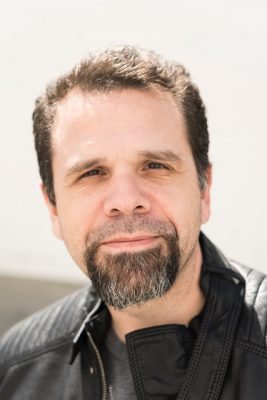Veteran editors and assistant editors always stress the importance of successfully navigating the politics of the cutting room. And, while this piece of advice is vital, it seldom offers a clear road map for those post-production professionals that are starting out. Things like: “learn to read the room” or “pick the right moment to voice your opinion”, while true, can ring just as hollow as those jewels of obvious but unfocused advice like “lose weight” or “eat right.” The advice is sound, but it is not specific.
This lack of specificity creates uncertainty. We want to succeed and advance in the industry, but we don’t want to burn any bridges with our colleagues or, worst-case scenario, get fired. Will I appear dumb? Will I come across as a pompous blowhard? When do I speak up? When do I shut up? When will they all realize I’m a fraud that has no business being here? When will I get the chance to make my mark?! All this mental noise creates so much stress that it can paralyze us, causing many of us to retreat into our shells, hoping we don’t piss anybody off.
It doesn’t have to be like this. I found I was able to quiet the noise in my head and find clarity of purpose when I shifted the focus away from myself.
If we look at all the questions that I posted above, they are all centered around the concept of ‘I’. They are all ego-driven statements. I don’t know about you, but I can tell you that in any facet of life, whenever I let my ego lead, things never end well.
To combat things that never end well, I want to share with you the core concept that has become my guide to address all my professional and personal interactions. It is simply this:
“I don’t care about being the smartest person in the room, I care about being the most helpful person in the room.”
Filmmaking is a collaborative process. It is bigger than any one individual. I found this realization to be incredibly liberating because it took that pesky ego out of the equation. It crystallized the notion that I am here, first and foremost, as an agent of service.
If you strive to do everything from a spirit of service to others (read: the project), your superiors will see you as a person who invariably pushes the process forward without gumming up the works. This will get you noticed.
In the right way.
A service-centric mindset will have you anticipating the needs of those around you. It will make you proactively fill those needs. And, guess what? This will get you noticed. Any editor will tell you that an assistant who can anticipate their needs is an assistant who will continue to get hired.
I want to give you an example of an experience I had during the editing of an extremely time-sensitive network pilot. I will explore the scenario’s resolution both from an ego-driven perspective and from a service-centric perspective. Here’s the scenario:
We are screening the editor’s cut for the director/producer. I’m sitting in a corner of the room behind everyone, taking notes on my laptop. During a particularly complex and dailies-heavy scene, the director gives a note that the cut is missing an unscripted story beat where one of the characters surreptitiously spits in a cup in order to ruin a DNA test. Since I watch every frame of dailies that comes in, I had noticed the beat which, due to the tight production schedule, had only been covered once and was, quite frankly, very easy to miss. I had made a note of the scene, take number and its timecode. Before my editor could react to the note, I took matters in my own hands…
Resolution A – The Ego-Centric Mindset
Before anyone can react, I pipe up: “It’s 36C take 4 at 12:09:26:12.”
In this scenario, although we found the right piece of footage, I could have handled that better.
For starters, I made my editor look like he didn’t have a handle on the footage. That’s a big no-no. The last thing any editor needs is for a director or producer(s) to feel like he or she is not paying attention to the material. This could not have been further from the truth. The editor I was assisting for is a meticulous and exacting craftsman. We were working really fast to meet an incredibly tight deadline. In these situations, things can get missed. At the end of the day, a good assistant should serve as a second pair of eyes and have the editor’s back. However, I chose to play hero ball and put myself front and center in this situation. This approach could almost certainly sour the relationship with my editor. Not a good outcome.
Resolution B – The Service-Centric Mindset or The Way It Actually Went Down
Before anyone can react, I grab my phone (I’m in a corner behind everyone, remember?) and text the editor: “36C-4 / 12:09:26:12.”
My editor locates the clip, loads it, plays it for the director, and cuts it in. Situation diffused. Everyone is happy. My editor feels protected and looked after. The equity I earned with my editor reaches a higher level. This is the preferred outcome.
When you act from a spirit of service, you will find the clarity to act correctly. Because when all is said and done, we are in the trust business. If your peers and superiors trust you, the sky is the limit.
Oh, and you will be bathed in glory!
Agustin Rexach – Guest Mentor

Agustin Rexach is an assistant editor in scripted TV in Hollywood. He was born on the island of Puerto Rico and studied communications at Boston University with a concentration in Film Production.
After graduating from BU in 1994, Agustin went back to Puerto Rico and started working for a local commercial production company. Over the next two years, Agustin ended up editing some of the island’s top advertising campaigns. His work at this company led to an offer from a post house in Miami. He left the island in 1996 and spent the next eight years in Miami editing commercials, music videos and any independent films he could get his hands on.
His next move was to San Antonio, TX where he spent six years as an editor at the city’s premiere post house, 1080. Hollywood kept tugging at him and finally made the move to LA in 2010. In 2014, Agustin broke in to Hollywood as an assistant editor in scripted television. In the years since becoming an assistant editor, he’s worked on shows such as “From Dusk Till Dawn”, “Hawaii 5-0”, the 2016 remake of “Roots”, two seasons of “Genius” for National Geographic and Fox Television. In 2019 and 2020, Agustin had the opportunity to co-edit the season 2 finale of USA television’s “The Purge” and one episode of Showtime’s upcoming Limited Series “The Good Lord Bird”, starring Ethan Hawke.





0 Comments